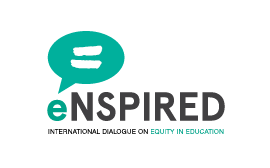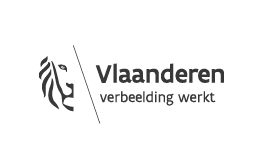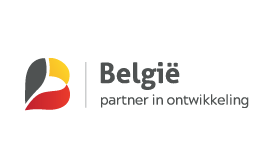About eduSHARE
What is an eduSHARE?
An eduSHARE is an educational product based on an interesting teaching practice that a student or teacher has developed following their own foreign experience and that is intended to be integrated into the curriculum of teacher training.
Each year hundreds and hundreds of students travel to Africa, South America or Asia within the framework of a Master’s thesis or internship. There they come into contact with a lot of interesting examples and inspiration on pedagogical, didactical or class-contextualising principles and activities. In order to provide students in Flanders an insight into these international practices as well, we developed the idea of an eduSHARE. This is a product or material (this can be a short video, a class, an interview, a game, a podcast, a photographic series or whatever) based on something that you found interesting during your internship and that you believe is worth sharing with other students or teachers within the teacher training programme. The purpose of this eduSHARE is that your fellow students or your teachers can learn from it, that it inspires them in some way or that it sheds new light on a subject, theme or approach. This way we stimulate multi-perspectivity, the idea that you can look at certain matters from as many perspectives as possible, within the teacher training programme.
Why this eduSHARE flow?
It is not easy to develop something of high quality so that it can be shared afterwards with fellow students or teachers within the training programme. Furthermore a student or teacher who has not had the same international experience, should be able to easily use this material. That is why we developed the eduSHARE flow. Step by step we guide you through the process of developing a good eduSHARE.
What will you do?
During your internship in South America, Asia or Africa you will be looking for an interesting example of a teaching practice that you have seen during your stay and that you believe is worth sharing with fellow students or teachers. A teaching practice that you believe that we in Flanders can learn from in some way.
The target group that you need to consider is simple, i.e. teachers. When looking for an appropriate eduSHARE the principal question must always be: ‘How can a teaching practice from my host country be an angle or inspiration to enhance or improve the teacher training programme in Flanders?’
Format
The final format entirely depends on your own interests and talents. Are you a good photographer? Maybe a telling photographic series is a good idea. Do you like to make short videos? Why not an interview with the teacher about a theme that inspires you? Or what about a game that you can play with your fellow students and where you focus on various ways to make a classroom more inclusive.
Example: eduSHARE video about home language in the classroom
In 2023, Barbara Vauterin and Lisa-Marie Deman, two final-year students of the bachelor’s programme in primary education at the VIVES University of Applied Sciences, went to Durban in South Africa. There they did a three-months internship at the Mthombeni Primary school. We asked them to look for an inspiring or interesting teaching practice during this international internship; a teaching practice that can be integrated into the teacher training programmes in Flanders. To do this they used the eduSHARE flow. As they are one of the pioneer students and the eduSHARE flow will be further developed, the eNSPIRED team together with Justine Pillaert, teacher trainer at the VIVES University of Applied Sciences, travelled to South Africa in order to support Barbara and Lisa-Marie in developing their eduSHARE.
After a couple of weeks living as interns over there Barbara and Lisa-Marie noticed that the way they deal with language issues in South Africa is quite different from how we handle them in Belgium.
South Africa has no less than eleven official languages. So, apart from English, which is primarily used in public life, such as in the media, in politics etc., there are still ten other languages: South Ndebele, North Sotho, South Sotho, Swazi, Tsonga, Tswana, Venda, Xhosa, IsiZulu and African. Hence a country with a multilingual context.
English and Afrikaans is spoken about all over the country but for many residents this is not their first language or home language. In KwaZulu-Natal for example, the province where Barbara and Lisa-Marie did their internship, the home language of most residents is IsiZulu.
Because in South Africa they believe that a good command of the home language makes pupils learn better, teachers in the first three years of primary education teach in the pupils’ home language. Although there is still room for the home language in the classroom afterwards, as from the fourth year the teaching language is English.
There is a lot to say about the integration of the home language at school and the language switch in the fourth year. With a little extra support from the eNSPIRED team, their teacher at the college and a video maker, they interviewed some teachers, the school principal and an educational expert on this subject. You can watch the result below.




